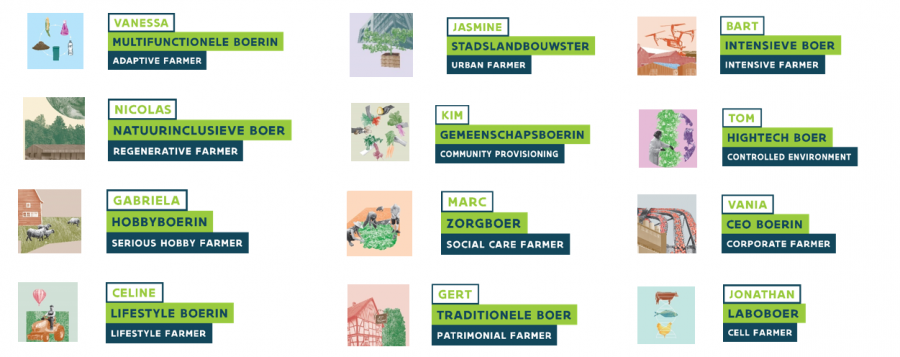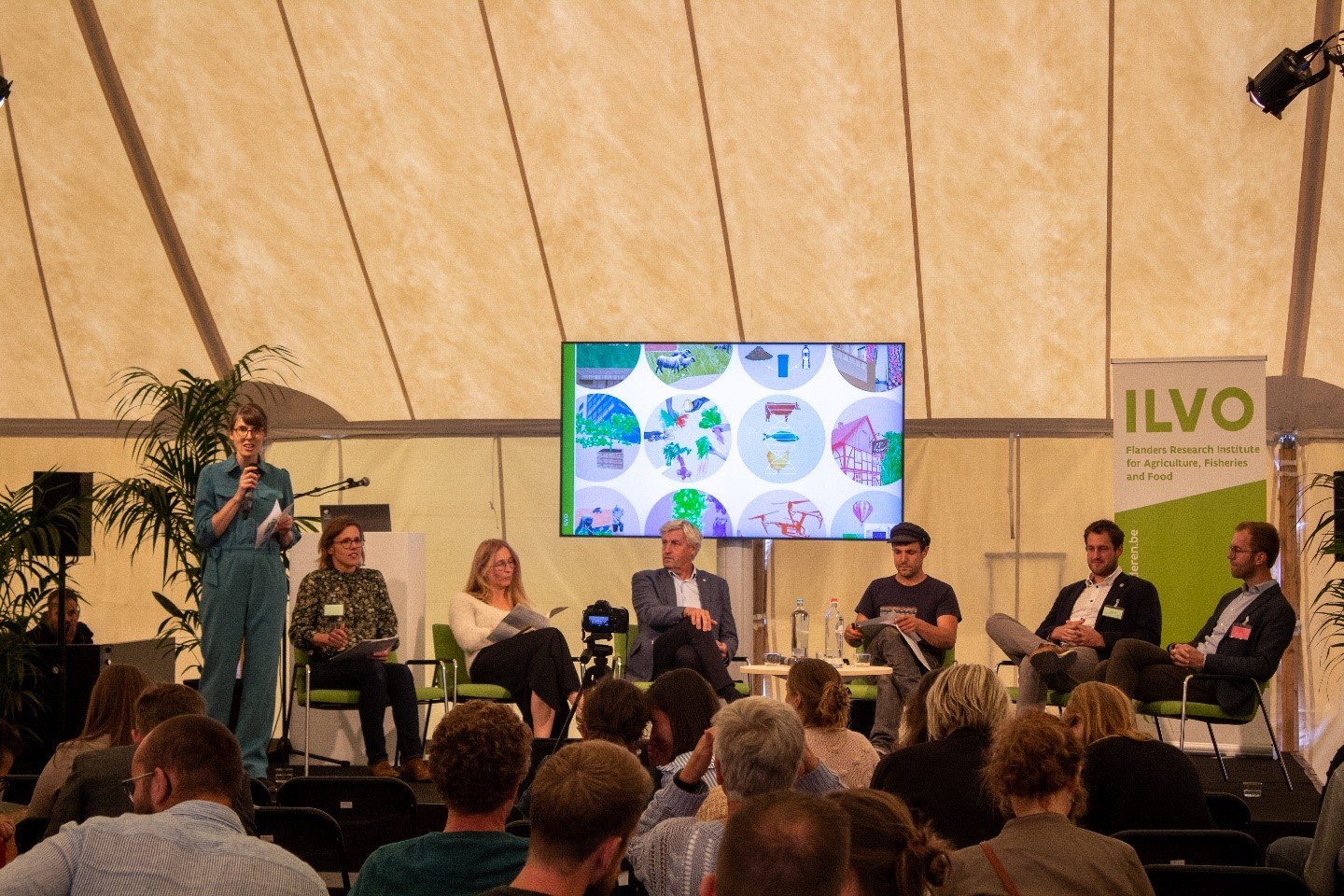Press release The farming profession? Many options for the future.
During the 'Farmers of the Future' seminar at ILVO's recent Festival of Food and Knowledge, ILVO held a dialogue with farmers, companies, researchers and policy makers present about the so-called 12 types of future European farmers. Based on research and broad surveys, Europe (more specifically the Joint Research Centre (JRC) and the Directorate General for Agriculture and Rural Development - DG AGRI) shaped these 12 'Farmers of the Future'. This was done from the observation that only 5.6% of EU farmers are under the age of 35. The major challenges facing agriculture, as well as the relentless flow of innovations in the agri-food sector, suggest that the farming profession will change significantly in the near future.
The types are not a true prediction of the future but rather a tool for future dialogue, and point to the great diversity that will continue to exist in the agricultural profession. They are a useful tool to make actors aware of the importance of proactive change, and they spark discussions and inspire policy and research.

Recognizable types
The set of 12 different farming types appears to have no ambition to predict the real future. Fleur Marchand (expert on systems thinking at ILVO): "The types create a handle for future dialogue. They point to the great diversity that will continue to exist in the agricultural profession in the future. And they can make all actors involved aware of the importance of proactive change. By triggering discussions locally, the 12 types inspire policy and research." At the seminar, the 12 types made the more diverse agricultural landscape more recognizable to farmers, businesses, researchers, journalists and policy makers, but without trying to shove people, innovations and companies into boxes. The aim of the dialogue was to explore future options for current and future farmers here in Flanders.
Transition in farming: diversity is key
Agriculture and food systems are in transition. But how quickly will that transition occur? Do we expect major disruptions that could trigger rough waters? What does this mean for the farms and ag companies? And how can we work together to best support the transition toward a socially and ecologically responsible food system? During the seminar, Dutch researcher Jeroen Candel emphasized the urgency of the transition and the many challenges. And he pointed to some positive evolutions, such as the development of a food policy at regional and regional level, a well-developed knowledge of guiding mechanisms such as food education, international agreements or investment policy, but also experiments on food democracy.
How all this will translate into the future of the agricultural profession requires constant attention to future reflection, and this is where the 12 types of farmers can help. Unlike macro-economic visions of the future, the focus here is on the farmer, an attractive visualization is used, and the rich diversity across Europe is represented.
When presenting the 12 types, we immediately see an influence of technology, environmental challenges and a difference in standards and values. However, each type offers an answer to one or more of the major challenges. For example, the lab farmer is no longer dependent on scarce and expensive farmland, the nature-inclusive farmer works hard to restore biodiversity, and the traditional farmer efficiently provides the large amounts of food we need. Does every farmer fit into such a "box"? Of course not, because each farm sets its own priorities and makes its own mix of goals and concrete plans. Still, the representation of the 12 types is particularly interesting, according to ILVO researchers, because it is so recognizable, human and inspiring. "With this visual representation we can work to raise awareness, facilitate discussions and inspire policy," says ILVO Scientific Director Fleur Marchand. The performance also makes it possible to break through linear thinking: "It is outdated to make predictions about the farmer of the future, which we then have to work towards with all our might for the next 20 years. We need to consider humanity and unpredictable but inevitable future crises, which will upset plans for the future. Diversity ensures that we will be able to move faster," said ILVO Scientific Director Elke Rogge.
The 12 types in a Flemish context
That theory was immediately tested in practice, during a workshop that engaged farmers, the non-profit sector, researchers, policymakers and other stakeholders. The concept proved to be immediately recognizable and applicable to start framing challenges and opportunities and thinking about transition.

In the debate that followed, speakers also appeared to see the potential of the concept, and the importance of diversity for a successful and accelerated transition was repeatedly stressed. Jannes Maes of Agriculture Minister Brouns' cabinet put it this way, "Each of the profiles can respond to a particular challenge, but we need to see that we can guide farmers through the transition." Tijs Boelens emphasized the urgent need for a new perspective for agriculture ("It is already more than time") and also called for a review of prevailing economic thinking. That it is essential to keep all farmers on board was also warmly confirmed by Hendrik Vandamme of ABS: "Farmers are needed, especially in times of crisis. But the rapid transition demanded is not feasible for everyone, the business models developed are not for everyone. Support is needed." Support and cooperation, for and between types of farmers: "Embrace each type, and look for collaborations," said Nele Lauwers of the Innovation Support Center of Boerenbond. Mieke Vercaeren pointed to the urgency of tackling problems quickly, and emphasized the willingness of retail to work concretely with farmers around this. There appeared to be consensus among the panel to look for cooperation between farmers, and between farmers and citizens, especially at the local level.
The closing word was for Koen Carels of SALV: "The 12 profiles offer an interesting framework for thinking about dealing with the challenges in agriculture."